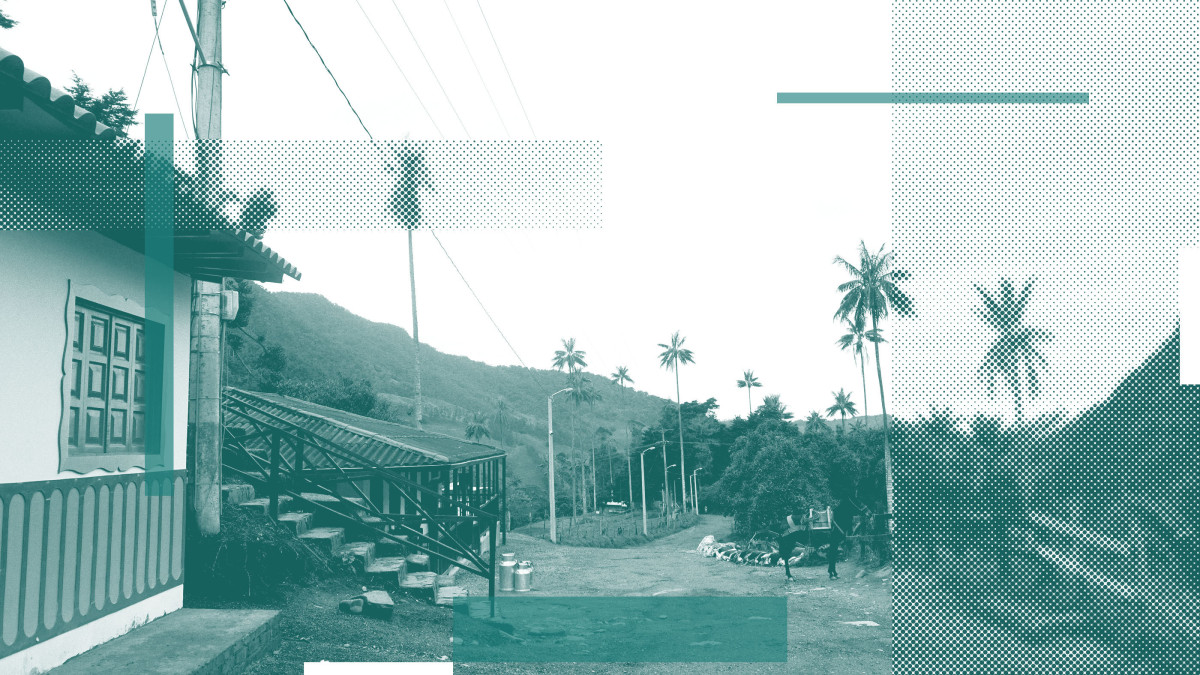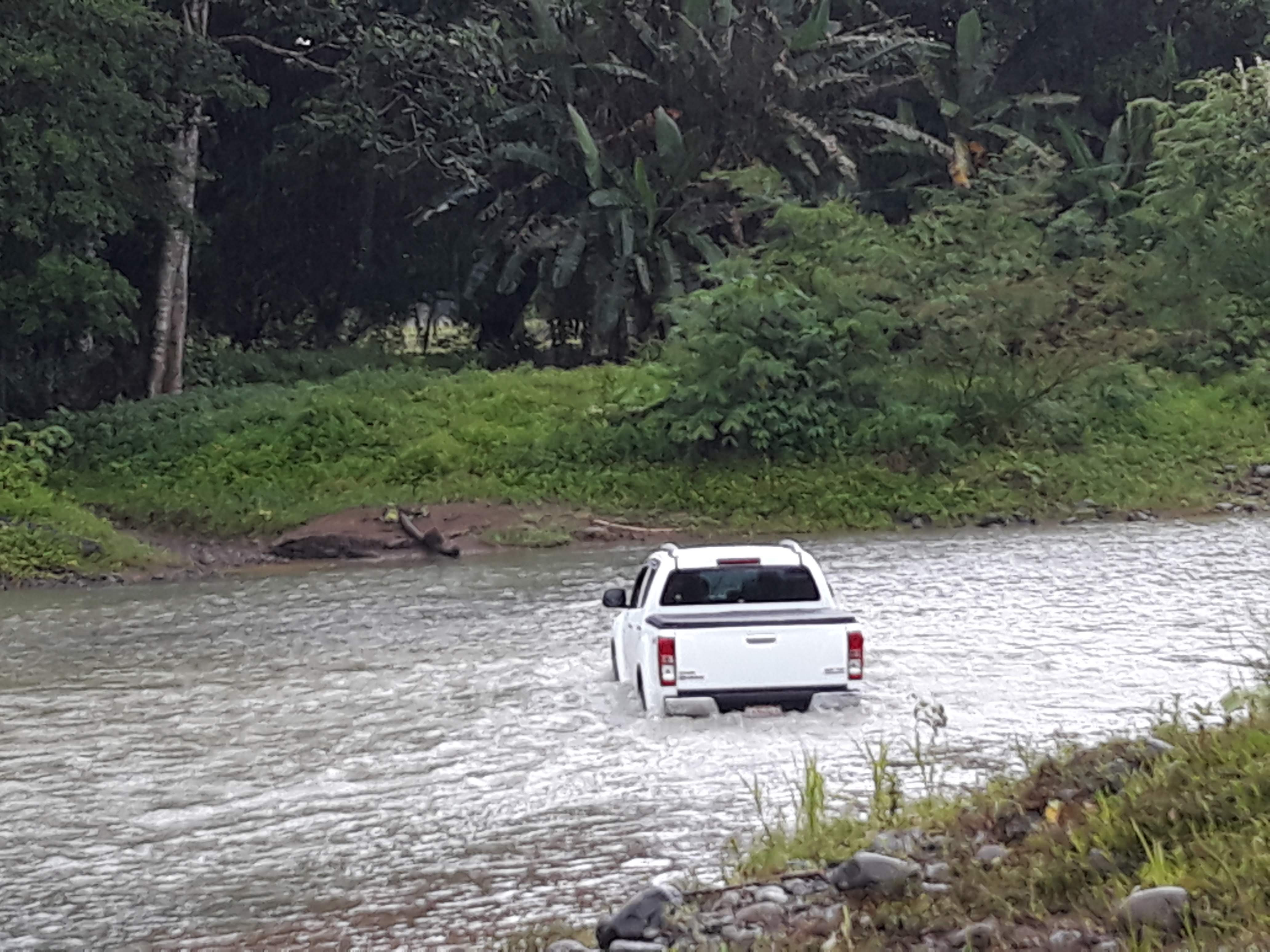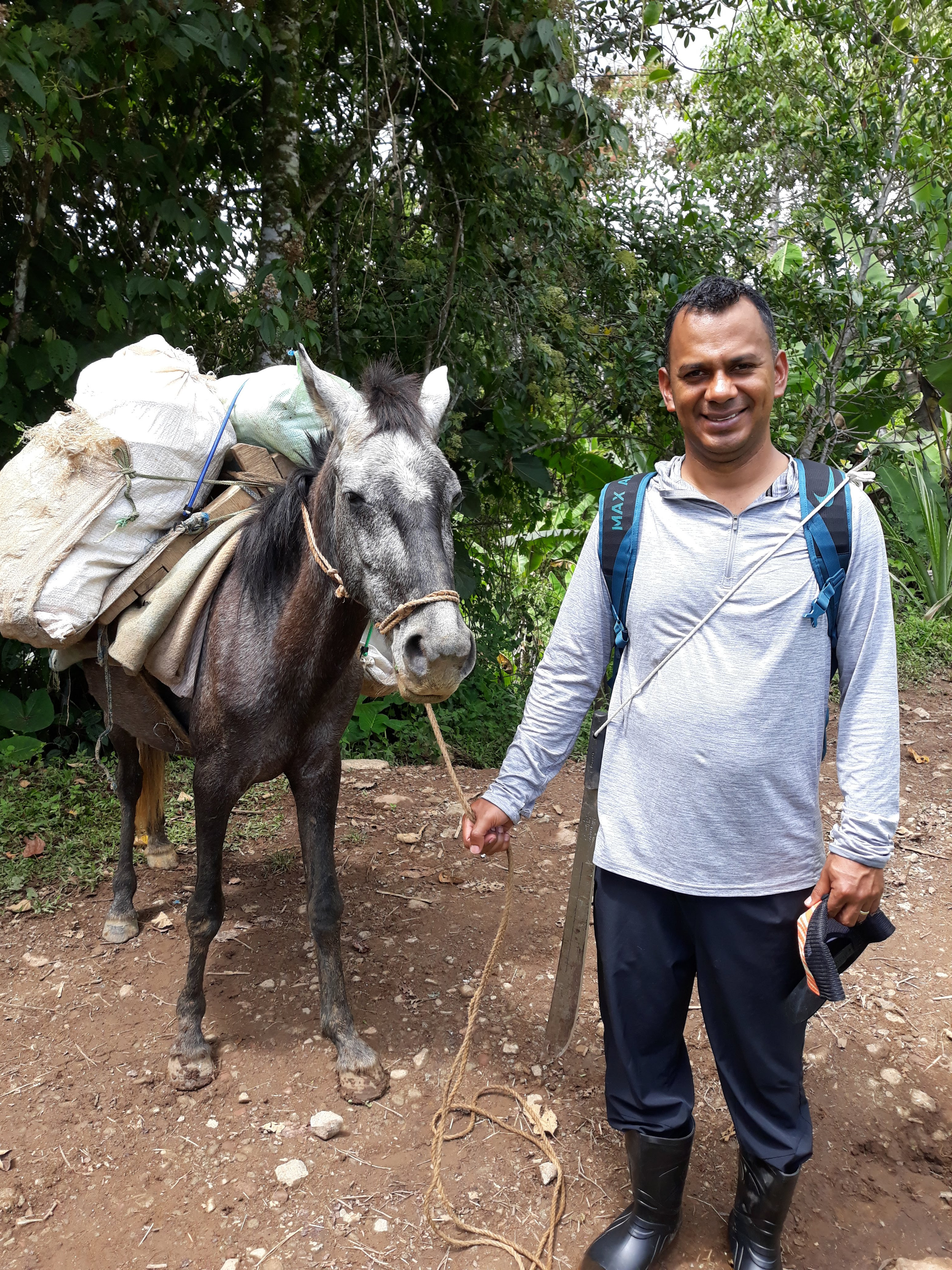
Into the Heart of the Jungle
A ReachGlobal missionary grapples with contextualizing the gospel to remote villages in Costa Rica.
Carlos Tejada climbs the vast and winding mountains of Costa Rica, taking with him a soccer ball, a camping tent and a team of pastors-in-training. He rides a pack mule or, depending on the terrain, drives a truck over rising streams. Before he arrives, he prays for God to lead him to “families of peace,” to people who will receive him as a guest and introduce him to tribe leaders.
There are eight people groups in Costa Rica who inhabited the land long before Spanish conquistadors arrived. Here, Carlos befriended the Cabécar people. He and his wife, Suzanne, serve on the ReachGlobal Latin America/Carribean (LAC) Equip Team and live with their two children in Cartago, a city near the mountains.
Carlos treks uphill to multiply pastors, oversee a church plant and invest in disciplemakers to establish the Church where the gospel isn’t known. With him is pastor Rodolfo, a local resident of the mountains, and a thriving teacher of the Word in Cabécar fashion—oral storytelling combined with Scripture reading, all with careful attention to context.
Dealing with syncretism
The Cabécar people were visited by missionaries in the 1950s and given a translation of the New Testament. When they read about God as Creator, the translation used the name, “Sibo,” the name of the Cabécar god from origin stories their ancestors believed. The God of the Bible shares no similar attributes with Sibo, and so, decades ensued where syncretism––a merging of religious ideas and cultures––defined their religion.

Carlos has spent several years getting to know the Cabécar people. And they are no small group––14,000 or more residents inhabit the coastal mountains, where the distant sea is shrouded by fog. Homes are nestled among banana, guava and orange groves.
Carlos first came to listen and converse. He learned what they ate and valued, what they thought of life and the afterlife. He discovered that the Cabécar are quiet people, slow to speak. Most understand Spanish but not with fluency.
As Carlos formed friendships with families in the mountain villages, he learned that a few years before he came, people burned their copies of the New Testament in 2016 over the dispute of God’s name appearing in the translation as “Sibo.” Afterward, some residents conjured up a new name for God, redefining him as “Uncle,” a name intended to show respect, yet fully lacking biblical accuracy and further confusing the people.

Jesus said, “Love the Lord your God with all your heart, soul and mind” (Matt 22:37), and Carlos wants the Cabécar people to know God who is neither a mythological Caribbean spirit, nor an uncle. “It’s more than a name,” he says, “It’s understanding...not just translating the Bible.”
“If we talk to them the way we normally present the gospel to people in the city that have the same framework as me, it doesn’t work.” For example, the mountain people believe that to go to heaven is to meet a fierce spirit who will devour them. Very different from Revelation 21 and 22 where God dwells with His people.
When Paul went to Athens (Acts 17:22-34), he used contextualization to explain creation’s divine purpose, then preached the gospel, communicating the need for repentance—for God “will judge the world.” This is grasped, says Carlos, when people are given an accurate picture of God and His holiness.
Attributes of God uncover the character of God as revealed in Scripture—what He has done, is doing now and is going to do. The Cabécar people have no physical representation of their spirit-creator. Carlos explains to them the rescue of Jesus and the mercy shown to us all.
As the Cabécar people encounter Jesus, they begin to understand God’s love for them. Many are drawing near to God whom they once believed unapproachable. Carlos sees these friends sharing their hope and opening their Bibles to learn theology and teach others in the community.
A people drawing near
As the Cabécar people encounter Jesus, they begin to understand God’s love for them. Many are drawing near to God whom they once believed unapproachable. Carlos sees these friends sharing their hope and opening their Bibles to learn theology and teach others in the community.
“God has revealed Himself to the people, and they have been calling Him with a name because He is a person,” he says.
Carlos recommends exploring the worldview of a culture to be effective in ministry. The only way people will understand the meaning of God is through discipleship––to walk with them and ask questions––as Jesus asked people questions.
Today, Carlos and his ministry partners are praying for an opportunity to plant a church and expand the gospel and discipleship in the region.
You can join the effort to reach the Cabécar people. Learn more about the work in Latin America and Caribbean.
Send a Response
Share your thoughts with the author.